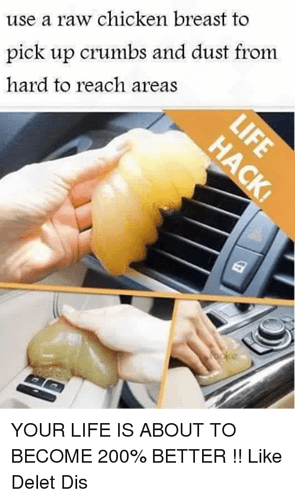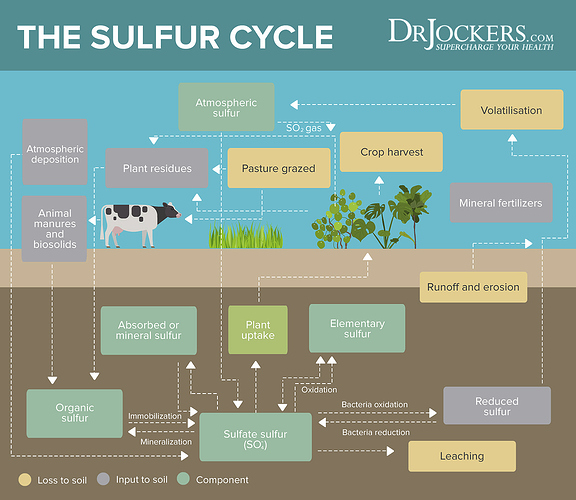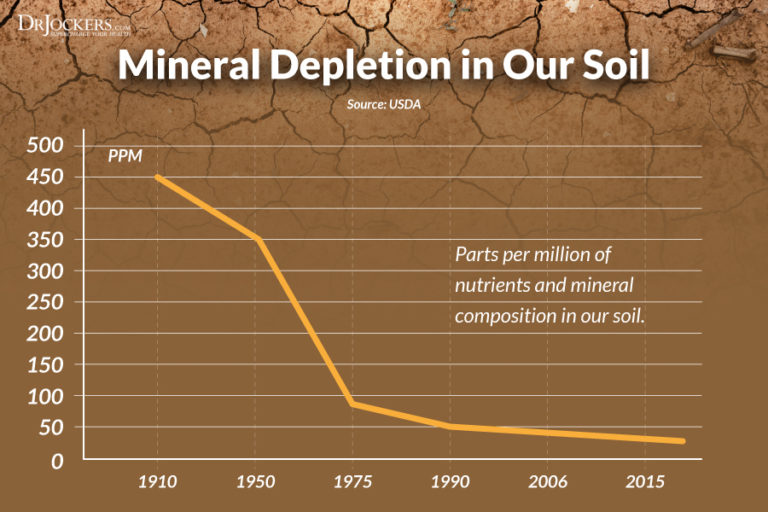I put this in Show me the Science only because there is none here. This is show me the bullshit:
Keto dieters are irresponsible stewards of the planet - says Harvard nutrition 'expert'
LOL.
Harvard is bought and sold by Big Food. So now they are pulling out the guilt card???



Well, actually…once you think about it… if everyone on this planet was eating keto the remaining resources would be eaten up pretty fast.
You all know that the nutrient in the soil is dropping like crazy and has been for the last few decades. The nutrient value of the crops is dropping. A lot of the pure junk being fed to people these days would be totally rejected if they could actually taste what they are eating. It is the shaft which would have been left of the thrashing floor. Now they add salt and sugar so people don’t know it is rat poop.
But, if everyone demanded to eat real food there would not be enough. Eating clean keto does require more resources to produce. So, does that make us all resource hogs? Are we selfish? I am willing to say yes.
Yeah, big food wants us to eat the crap cause that is where the money is for them…but also because they are running out of this resource and they are hiding that fact from the public.
@Katiekate Please cite some sources for your claims. Malthus was debunked long ago.
Articles like this appear to suggest that anti-keto people have a hidden agenda. Could it that be?
Well…the information is available just about anywhere you go to investigate… but start here…
True especially the selenium to mercury ratio and MSM (organic sulfur; precursor to glutathione)
image link image linkReferences:
[1] “…Without adequate sulphur, glucose metabolism becomes defective. This leads to muscle and fat cell damage as the result of becoming glucose intolerant. Over time, sulphur deficiency can lead to all manner of skeletal and muscle disorders with corresponding pain and inflammation. This impaired glucose metabolism resulting from insufficient sulphur is also implicated as a factor in obesity and the dangerous condition known as Metabolic Syndrome. This occurs because one way the body compensates for defective glucose metabolism is by gaining weight. When sulphur deficiency occurs within the context of a lowfat diet, the problem becomes more serious. Additional sources of glucose present in a lowfat diet in the form of carbohydrates are converted to fat. Worse, these lipids are released into the bloodstream as triglycerides to fuel damaged and inflamed muscle cells . …” …More
[2] “…The concentration of selenium deficiency problems in animal husbandry in the central part of southern Norway is easy to understand when the composition of the soil is considered. Analysis of 485 samples of Norwegian cultivated soils shows that the total selenium content varies from 0.043 to 2.734 ppm. …More
[3] “…Iodine (as iodide) is widely but unevenly distributed in the earth’s environment. In many regions, leaching from glaciations, flooding, and erosion have depleted surface soils of iodide, and most iodide is found in the oceans. The concentration of iodide in sea water is approximately 50 µg per liter. …” …More
References:
Dr. Walter Willett is a self-admitted professor of epidemiology. Here he is with Ancel Keys.

Assuming this is true, if we stop using that soil to grow the same crops year-in and year-out and turn the land over to ruminant ag, the soil nutrients will increase again over time. Animals are far more nutrient dense than plants and they can eat naturally growing grasses and plants that provide humans with virtually no nutrition.
I don’t think the planet has the capacity for us to all stop eating animals and try to survive on crops grown on soil with dropping nutrient density.
@ZuleikaD Absofreakinlutely! First off we wouldn’t need to all be turning toward keto and upsetting the current agriculture industry if we had been eating as we did 150 years ago most likely. Now we are in crisis trying to turn around the last 80 years of metabolic damages we have taken on as a population. The greed of the processed food industry is the cause for all the mess we are in with food supplies on the planet. Agriculture on a mass scale growing corn and wheat destroy the life in the soil. This will lead to total chemical supplements in the soil to grow anything on this planet. Already happening actually. The survival of animals and humans has always been to be in balance with resources that are available where they live. We have overpopulated to the point where grains grown in different parts of the world are needed to feed people who have already stretched their local ecosystem beyond it’s ability to support local populations. This spreading of poor quality grain based foods is just enough to keep the cycle getting more and more out of whack. This has led to mass deforestation in virgin forest environments, and increased greenhouse gasses because of the loss of trees and grass lands. Blaming cows is nonsense. If cows fed on pasture lands there would be a natural balance on the planet as there has been for eons.
This article has so many biased holes in it that it’s just more kool-aid for vegans to drink and unite against people eating real traditional food. Grain farming is destroying our planet and health, not beef and pork consumption.
I don’t wish to sound insensitive to the starving people of our planet, but I feel that when we intervene often we end up making the situation worse instead of living with the natural balance of our planets ability to balance itself without our interference as we did before the Industrial Age. It’s arrogant to think we can continue to manipulate our environment to feed the ever expanding population.

This is why we need ruminant agriculture. Not only would cows and other ruminants restore the fertility of the land, but they could be grazed on land currently being used to produce unhealth products, such as high-fructose corn syrup, soybean oil, and wheat gluten. Add to that the fact that there are plenty of grasslands, incapable of being used for crop-growing, that need ruminants to restore them to life. Ruminant agriculture heals the soil, eliminates erosion, and helps sequester carbon. And the fertilzer they spread on the land doesn’t need to be made from our precious petroleum reserves, nor is it necessary to expend any of those precioiuse reserves to ship it anywhere. A net win for everyone, if I ever saw one!
Thank you so much, Paul! That is a fantastic presentation. Anyone who has not yet watched, I can not recommend it enough.
I love this: The best thing you can do with grain is feed it to ruminants, not humans.




